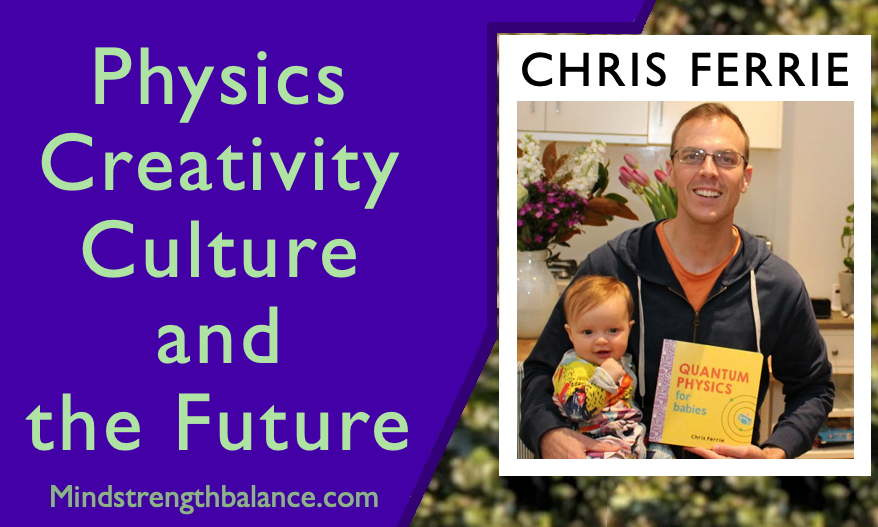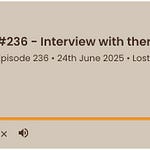Chris Ferrie is a happily married father of four, and an Associate Professor at the University of Technology in Sydney, Australia. He specializes in quantum computation and information theory.
He has written and co-authored over 2**6 popular books introducing theories, practices, and applications in all fields of science. Most of his titles are for young readers, such as Blockchain for Babies, and ABCs of Engineering, along with adult-oriented titles like 42 Reasons to Hate the Universe, and Quantum Bullsh*t.
In January 2024 I interviewed Dr. Chris Ferrie. We talked about education, creativity, the culture of science, and science in culture.
This is the first half of the interview. The full interview, and a searchable transcript of it, is available to my paid subscribers. Become a paid subscriber!
Excerpts from the interview:
“From that social perspective, you have all these young people who just shake their heads at these old people who seem almost to them like crackpots, but they still publish peer-reviewed journal articles. There are also real crackpots who don’t publish peer-reviewed articles because their work is full of contradictions and utter nonsense. Some works in the interpretations of quantum physics is of a similar variety, but is a more sophisticated crack pottery.”
“From a physics perspective, our bodies are struggling to keep ourselves out of equilibrium, but not in complete chaos. When you think about the evolution of the universe, we start in this ordered, low entry state, and we end up in this high entropy state. A standard analogy is to drop some milk into coffee. At first all the milk is in one spot, but in the end you get a latte. At some point in the middle, you get all of this complexity; all of these intricate ribbons.”
“By analogy in politics: you don’t want complete freedom, but you also don’t want complete structure. You need something in the middle, but that thing can’t be static.”
“The only thing I’ll say from a political perspective is that I hate it. The reason I hate it is that everyone who’s engaged in it is looking for simple solutions that lead to some static state of the world where we can all be happy with no more work to do, when that’s not the case. There’s always work to do. You shouldn’t want a static economy, a static political system, or a static universe.”
“Making mistakes is the process of coming up with categories, analogies, and examples and finding out they’re wrong. At the end, you have all of these mental constructs, examples, constructs that you can rely on to help you in a variety of situations.”
“An engineer can be an artist. Mathematicians, scientists, engineers, they’re all creatives. They have difficult problems, undefined problems even, and they’re coming up with candidate solutions. They’re wrong more often than they’re right.”
— Dr. Chris Ferrie















Share this post